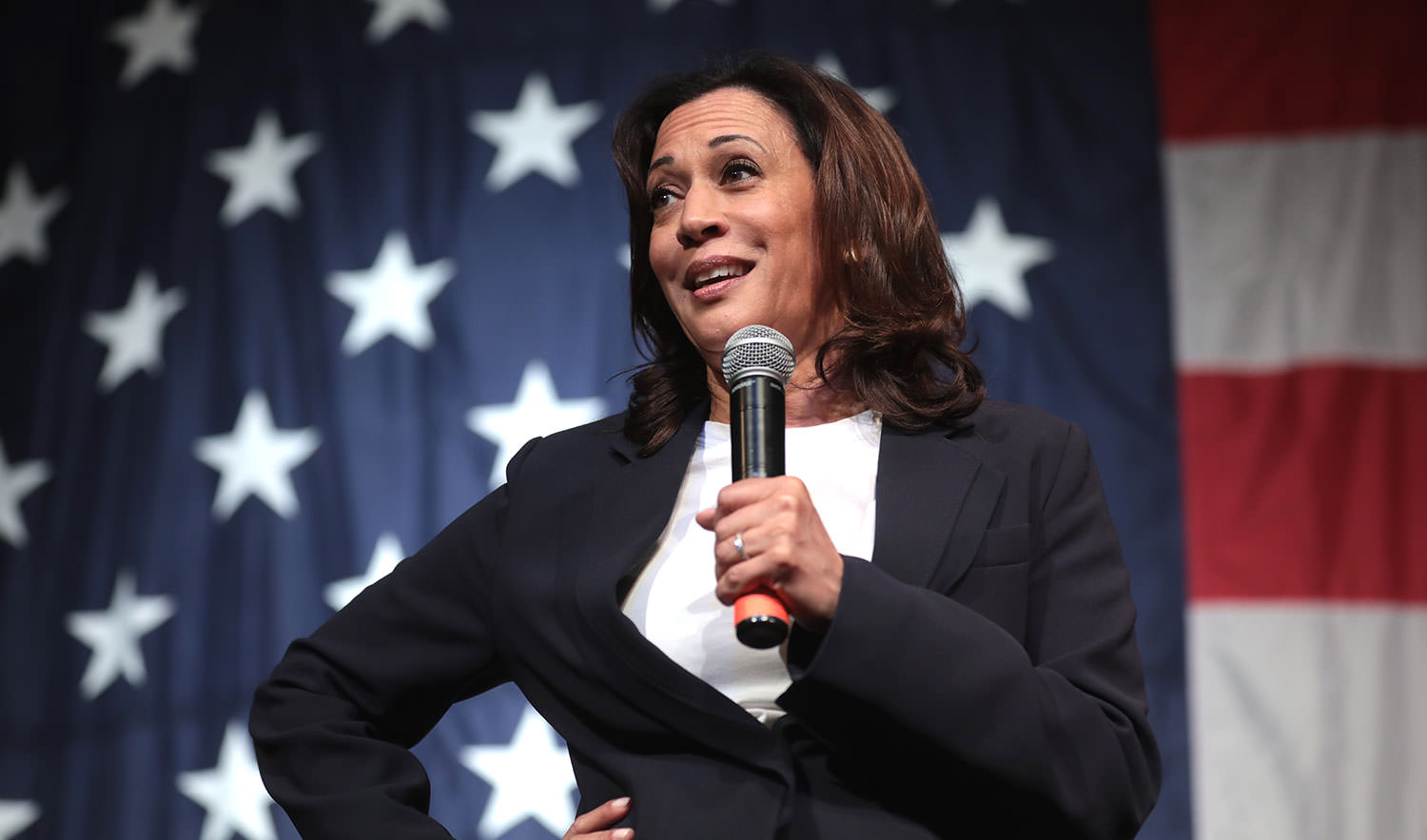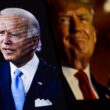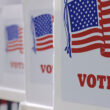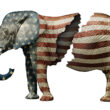“Now it’s on to Chicago, and let’s win there!”
Those were Senator Robert F. Kennedy’s last public words, spoken shortly after midnight on June 5, 1968, in the Embassy Ballroom of the Ambassador Hotel in Los Angeles. Senator Kennedy had just claimed victory over his Democratic rival, Eugene McCarthy, in the hotly contested California primary. Kennedy’s remark, punctuated by a “V” for Victory hand gesture, referenced the Democratic Convention that would begin in Chicago twelve weeks later.
I was in that ballroom, an excited twelve-year-old volunteer in a presidential campaign now energized with renewed hope after this hard-fought triumph over McCarthy, who had defeated Kennedy two weeks earlier with an unexpected upset victory in the Oregon primary. It was the first loss ever suffered by a Kennedy at the ballot box since his brother Jack’s election to Congress in 1946.
After President Joe Biden’s reluctant but inevitable decision nine days ago to stand down from his campaign for reelection (has it really been only nine days?), I found myself transported back to that victory celebration in 1968 when all of us in that ballroom, and millions more across the nation, briefly believed that we were on the verge of generational change in America.
That was also the night when I first discovered that politics — and life — is driven by hope. And that both can be instantly eviscerated by its absence.
Because an assassin’s bullet would prevent Senator Kennedy from ever reaching Chicago, we will never know if he would have gone on to “win there.” Yet, in that moment we had a palpable, exhilarating feeling of optimism. Twenty-five hours later we suddenly felt hope’s deprivation, in a wrenchingly incomprehensible way.
Now, after President Biden’s withdrawal from the race in favor of his vice president, Kamala Harris, 2024 feels like a Bizarro universe version of 1968:
- Instead of a Democratic president who was deeply disliked by more than half the country, as Lyndon Johnson was in March of 1968 when he withdrew from the race (36% approval and 52% disapproval), President Biden, despite his low approval rating, is viewed as a person of honesty and integrity by 70% of Democrats. The difference? President Johnson’s loss of support was because a majority of Americans felt he had not been honest with them about the status of the Vietnam war, while President Biden’s disapproval stems from an immutable fact: the overwhelming perception that he is too old to seek a second four-year term. Yet, as has been evidenced over these last eight days (has it only been eight days?), the reservoir of good will for him from within the party is overwhelming. Public perception of him “failing” has been transformed into an outpouring of encomia with one particular word being used to describe his newfound status as a great president:
Former President Barack Obama: “Joe Biden has been one of America’s most consequential presidents, as well as a dear friend and partner to me.”
Former House Speaker Nancy Pelosi: “President Joe Biden is a patriotic American who has always put our country first. His legacy of vision, values and leadership make him one of the most consequential Presidents in American history.”
House Minority Leader Hakeem Jeffries: “President Joe Biden is one of the most accomplished and consequential leaders in American history.”
Pennsylvania Governor Josh Shapiro: “President Biden is a patriot who has served our country honorably in the Senate, as Vice President, and as one of the most consequential presidents in modern history.”
The criticism of Democrats that has been axiomatic for as long as I can remember is that they fall in love, while Republicans fall in line. Clearly, the conclusion to be drawn from the Party’s seamless transition from Biden to Harris in a single week is that Democrats are capable of falling in love and getting in line at the same time. The results of what has been a stunning and unprecedented tectonic shift in the electoral landscape are, well, undeniably…consequential.
In addition to President Biden’s Oval Office address last Wednesday explaining his decision not to seek reelection (just as LBJ did), the surreal comparisons to 1968 are increasingly Sorkinesque, with more than a touch of Hunter Thompson thrown in to ensure that the next ninety-eight days until November 5th will be like a rollercoaster ride where the track is still being laid while the train is already in motion.
Here are some of the not-so-funhouse mirror images of 1968:
- An assassination attempt, but this time the candidate survived to lie another day.
- The Republican vice-presidential nominee spewing hatred and division is not Spiro Agnew (“nattering nabobs of negativism”), but J.D. Vance (“childless cat ladies who were miserable at their own lives”).
- The brutal Russian war in Ukraine (unlike the 1968 Soviet-led invasion of Czechoslovakia where even lifelong Red-baiter Richard Nixon refused to attack President Johnson out of respect for the once inviolate principle that “partisanship ends at the water’s edge”) is now just another political football to be tossed around recklessly by Trump (“If we had a real president, a president…that was respected by Putin, he would have never invaded…”)
- A Robert F. Kennedy (Jr.) presidential campaign that rhetorically invokes the memory of his father’s 1968 campaign, yet could not be more different. Every one of his father’s family members supported his candidacy in 1968, while most of RFK Jr.’s family and friends, while they love him, strongly oppose his candidacy. (Full disclosure: I am one of those friends, and I know he genuinely believes that his candidacy is justified by his concern for the future of the country. Yet, as I have communicated to him directly, I strongly oppose his decision to run, both because I disagree with its foundational premise that, as another 1968 candidate, George Wallace, said of Hubert Humphrey and Richard Nixon, “There’s not a dime’s worth of difference between them.” Wallace was wrong then—just as Bobby is wrong now—in arguing a false equivalency between the impact on democracy of a Kamala Harris presidency versus “Dictator on Day One” Donald Trump. Most important, despite the current polling that suggests he draws more voters from the GOP, I am convinced that Bobby’s candidacy will ultimately benefit the unthinkably dangerous prospect of Trump’s return to the White House, now with newly unchecked executive power granted to him by the Supreme Court.)
- Chicago. Again. The 1968 Convention was held at the old International Amphitheater located immediately adjacent to a gigantic animal stockyard, where the odor was a perfect metaphor for the event itself: an aromatic mix of tear gas and manure. The bloody violence in the streets was the result of a mismatch between Mayor Richard Daley’s 12,000 member police force (bolstered by 6,000 National Guardsmen) and no more than a few thousand young anti-Vietnam War protestors. With this year’s DNC set to be gaveled-in three weeks from today, the prospect of large protests around the war in Gaza remain real. Yet “Genocide Joe” will now not be the nominee. And the Vice President has already signaled a difference, at least in tone, on the issue after a one-on-one meeting with Netanyahu on Wednesday (after which he promptly decamped to Mar-a-Lago to check out his future residence-in-exile.)
Although there are many bizarre parallels to 1968 in this tumultuous election year, one thing is certain. The virtual roll call of the 4,699 delegates that will nominate Kamala Harris as the Democratic nominee for president of the United States will happen this week on either Thursday or Friday, well in advance of the Convention. This will guarantee that the Democratic ticket will preempt Republican attempts to keep it off some state ballots before August 7th.
And, yes, I said the “ticket.” The DNC Rules Committee voted earlier this week to give the nominee the ability to name her selection without a virtual vote of the delegates. We can therefore expect the bumper stickers to start being printed as early as next week. Will they read Harris/Shapiro? Harris/Kelly? Harris/Beshear? Harris/Buttigieg? Harris/Walz?
We’ll know soon enough. (As I write this, there is a mini-boomlet going on for Minnesota Governor Tim Walz).
But one thing is certain for Kamala Harris: it’s now on to Chicago and she will win there.







0 Comments